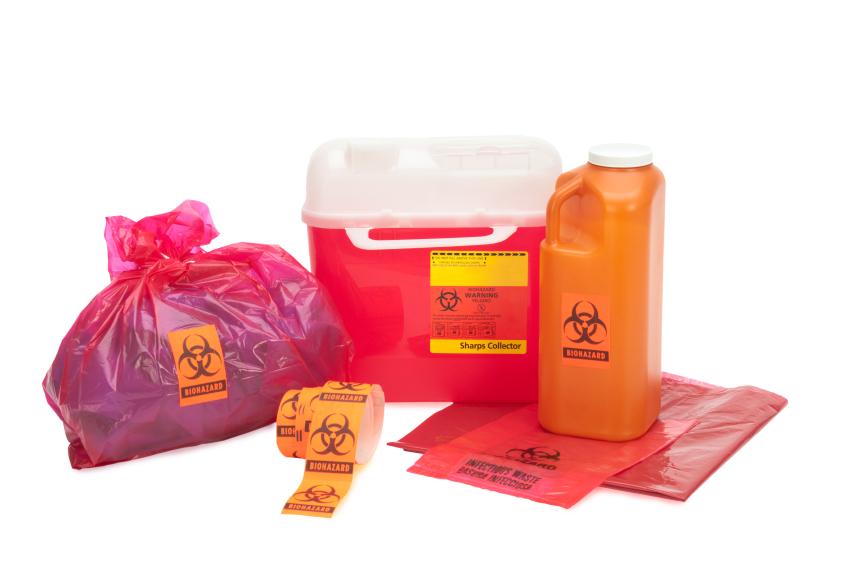Streamlined Solutions: Simplifying Health Care Procedures with Specialist Medical Waste Disposal
Streamlined Solutions: Simplifying Health Care Procedures with Specialist Medical Waste Disposal
Blog Article
Discovering Different Waste Disposal Options for a Cleanser Setting
In the search of a cleaner setting, the management of waste disposal has emerged as an essential focal point for lasting growth. With a multitude of waste disposal alternatives offered, ranging from standard garbage dump techniques to cutting-edge waste-to-energy technologies, the option of just how we handle our waste has significant implications for our planet's health.
Recycling Techniques
Implementing efficient reusing techniques is critical in lessening waste and advertising sustainability in our setting. Recycling includes the process of transforming waste products right into multiple-use things to prevent unneeded disposal.
An additional essential recycling technique is composting, which includes breaking down natural waste like food scraps and yard trimmings right into nutrient-rich dirt. This procedure not just diverts organic waste from garbage dumps however likewise generates an important resource for horticulture and agriculture. Furthermore, upcycling is an imaginative recycling technique that includes changing old or disposed of materials into items of higher quality or value. By incorporating these various recycling methods into our waste management methods, we can considerably decrease our ecological footprint and move in the direction of a more sustainable future.

Composting Methods
Effective waste management practices, such as reusing approaches, lead the way for a cleaner environment, and currently, shifting the emphasis to 'Composting Techniques', we explore sustainable ways to break down natural waste for environmental benefit. medical waste removal near me.
Composting is an all-natural process that transforms organic waste, like food scraps and yard trimmings, into a nutrient-rich dirt change. The secret to effective composting exists in producing the ideal balance of environment-friendly materials, such as vegetables and fruit scraps, and brown products, like dried out branches and leaves. These products decay with the help of bacteria, breaking down the waste right into beneficial garden compost.
There are numerous composting techniques available to fit various demands. Traditional backyard composting includes layering organic products in a container or heap and regularly transforming the combination to aerate it. Vermicomposting, on the various other hand, makes use of worms to break down raw material right into garden compost (click here). For those with limited area, interior composting systems give a convenient solution. By making use of composting methods, we can decrease the quantity of waste sent out to landfills while creating a valuable item for enhancing dirt and supporting plant development.
Incineration Pros and Cons
Incineration, as a garbage disposal method, offers both advantages and disadvantages that warrant cautious factor to consider in the realm of lasting waste management techniques. On the positive side, incineration can dramatically decrease the quantity of waste, minimizing the need for garbage dump area and potentially reducing greenhouse gas emissions. Incineration also enables the healing of energy via the generation of power or warm, contributing to resource recuperation. The procedure can be utilized to destroy unsafe compounds, offering a safe method for dealing with specific types of waste that might position dangers to public health and wellness and the environment if left untreated.
Furthermore, the high initial financial investment and functional costs of incineration facilities position financial difficulties, making it a less affordable alternative contrasted to various other waste administration strategies. Mindful tracking and guideline are vital to minimize these negative effects and take full advantage of the advantages of incineration as component of a detailed waste administration approach.
Landfill Management Approaches
Land fills play a crucial role in waste management and ecological conservation by providing a containment system for the disposal of solid waste materials. By compacting the waste, the quantity is decreased, enabling for even more waste to be accommodated over time.
Furthermore, the application of day-to-day cover techniques is vital in lessening odors, avoiding litter, and reducing the tourist attraction of insects. Covering the disposed waste at the end of every day helps to contain odors and stop potential environmental contamination. In addition, the surveillance of garbage dump gas emissions and leachate levels is critical in making sure that ecological requirements are satisfied and that any prospective threats to bordering communities are decreased.

Waste-to-Energy Technologies
Among the innovative approaches to throw away management involves utilizing Waste-to-Energy innovations to convert strong waste into functional energy sources. Waste-to-Energy (WtE) innovations include an array of processes that intend to extract energy from waste products via thermal, chemical, or organic methods. This conversion procedure not only minimizes the volume of waste that ends up in garbage dumps but additionally produces important power resources such as power, warm, or biofuels.
Incineration includes shedding waste at high temperatures to produce warmth and electrical energy. Gasification transforms waste into a syngas, which can be used for power generation or chemical production.
Applying Waste-to-Energy modern technologies can aid minimize ecological issues associated with standard garbage disposal techniques while all at once offering a renewable resource source. However, mindful factor to consider needs to be offered to discharges control and ensuring the sustainability of feedstock materials for these modern technologies to be really beneficial for a cleaner setting.

Final Thought
To conclude, checking out numerous waste disposal alternatives such as reusing, composting, incineration, garbage dump administration, and waste-to-energy innovations is necessary for advertising a cleaner atmosphere - click here. Each method has its own advantages and difficulties, yet by making use of a mix of these strategies, we can function in the direction of reducing the amount of waste that finishes up in garbage dumps and ultimately add to an extra lasting future for generations ahead
With a wide variety of waste disposal options readily available, ranging from traditional garbage dump techniques to cutting-edge waste-to-energy technologies, the choice of just how we manage our waste has far-reaching effects for our earth's health. medical waste removal service.Incineration, as a waste disposal technique, presents both advantages and downsides that merit cautious consideration in the realm of lasting waste monitoring techniques.Landfills play a critical role in waste management and ecological preservation by offering a containment system for the disposal of strong waste products. By compacting the waste, the volume is reduced, permitting for more waste to be suited over time
One of the cutting-edge strategies to throw away management includes taking advantage of Waste-to-Energy technologies to transform solid waste into usable power sources.
Report this page